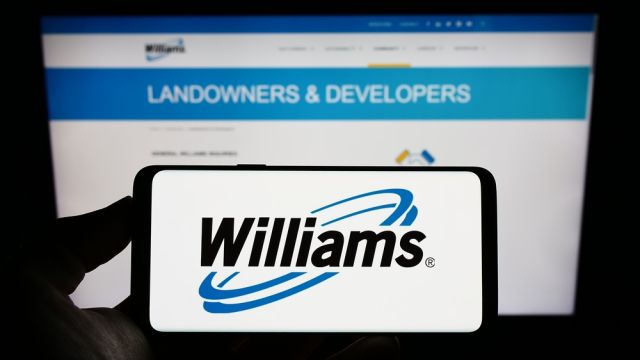
(Source: Shutterstock)
Williams Cos. (WMB) is running gas in a new mid-Atlantic regional system despite a recent court ruling that vacated its federally approved permit for the project.
The $950 million Regional Energy Access project (REA), which enhances the infrastructure of the Transco Pipeline Network in Pennsylvania, New Jersey and Maryland, went into full service ahead of schedule in the first week of August, Williams Cos. announced during its second-quarter earnings call on Aug. 6.
Williams President and CEO Alan Armstrong confirmed the project was operational and congratulated his team for finishing the job early in a difficult area.
The same week that the project began operating, the D.C. Court of Appeals struck down a Federal Energy Regulatory Commission (FERC) permit necessary for the interstate project to operate. Eight states joined the suit against the project, including New Jersey. The Garden State passed a law in 2023 requiring that 100% of all state power come from renewable sources by 2035.
The court ruled the FERC should have better assessed the effect of greenhouse-gas emissions caused by the project and to determine whether the area requires the extra natural gas capacity.
During the earnings call, Williams executives discussed the next legal move on the project, which they expect will remain operational.
“The next step will be seeking a temporary certificate. This is not new to FERC,” said Lane Wilson, general counsel for Williams. “We fully anticipate they'll be defending the certificate. We'll be seeking a rehearing on a timely basis, and that's probably about 35 days out at this point.
“But we don't have any concerns that we're going to be able to continue to operate, don't have any concerns about getting a temporary certificate and ultimately don't have any concerns about defending what FERC has done on this project.”
The D.C. Appeals Court ruling was one of three made by the judicial panel over the last month that threw out FERC permits. The reasoning behind the decisions varies, though all rulings do state that the FERC failed to determine the overall effect of greenhouse-gas emissions of each project. The current FERC leadership has said it is following the current law.
The REA is designed to increase the natural gas capacity in the mid-Atlantic region by 829 MMcf/d. Williams planned to have the facilities in place by the 2024 heating season. The design of the project consisted of additional compression stations and two new loop segments along the current Transco route.
The new facilities are needed to meet rising regional demand for gas as older coal stations are decommissioned and to provide reserve power for intermittent renewable sources, according to the Williams’ project outline.
Recommended Reading
E&P Highlights: Feb. 18, 2025
2025-02-18 - Here’s a roundup of the latest E&P headlines, from new activity in the Búzios field offshore Brazil to new production in the Mediterranean.
E&P Highlights: Dec. 16, 2024
2024-12-16 - Here’s a roundup of the latest E&P headlines, including a pair of contracts awarded offshore Brazil, development progress in the Tishomingo Field in Oklahoma and a partnership that will deploy advanced electric simul-frac fleets across the Permian Basin.
Delivering Dividends Through Digital Technology
2024-12-30 - Increasing automation is creating a step change across the oil and gas life cycle.
E&P Highlights: Jan. 27, 2025
2025-01-27 - Here’s a roundup of the latest E&P headlines including new drilling in the eastern Mediterranean and new contracts in Australia.
E&P Highlights: Feb. 10, 2025
2025-02-10 - Here’s a roundup of the latest E&P headlines, from a Beetaloo well stimulated in Australia to new oil production in China.
Comments
Add new comment
This conversation is moderated according to Hart Energy community rules. Please read the rules before joining the discussion. If you’re experiencing any technical problems, please contact our customer care team.






